An Awfully Beautiful Place
I visited the awfully charming Pakistani province of Baluchistan in August 2007. Baluchistan is situated in the North West of Pakistan and borders with Iran, Afghanistan & Arabian sea. It is situated at a very strategic place and is full of natural resources. No wonder foreign forces namely USA, Russia, China and India have keen interest in it. Our leaders are playing puppet in the foreign hands and our poor Balochi brothers are paying the price for it.
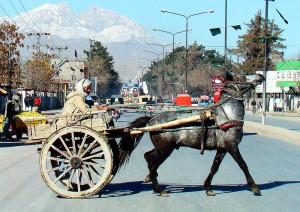
NOTE: Click on photo to enlarge.
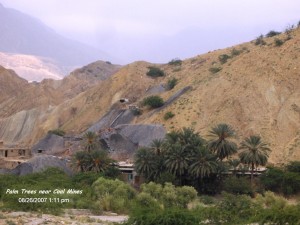
Few Facts
Baluchistan is:
– The largest province covering 43% area of Pakistan
– The least populated, houses only 7.2 million, 5% of Pakistanis
– The poorest, as most of its land is barren desert or dry high mountains. Water is scarce
– Winters are bitterly cold and summers are scorching hot, making living here very difficult
– About 55% inhabitants speak Baluchi, whereas other languages include Pashto, Sindhi, Punjabi and Urdu
– The area has huge amounts of minerals. It has largest copper deposits in the world. Balochistan is the biggest supplier of natural gas (from Sui). Coal & petrol are few others to name.
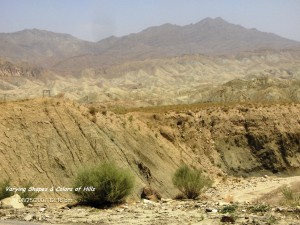
Balochi people are generally friendly & less exposed to rest of the world. Education level is quite low. Baluchi culture is tribal whereby the leader & the traditions are followed strictly. Baluchi people have many tribes living in Pakistan as well as in Iran & Afghanistan. Dry hills and desert stretches for miles. Landscape is fascinatingly full of different colors & shapes.
.
.
.
.
.
.
.
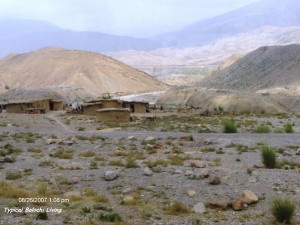
MUD HOUSES
Baluchis have no agriculture no industry or any other trade to live on. Most of them live in rural areas in mud houses and rely on livestock, little bit of fruit farming and smuggling of non-tax paid goods from Iran & Afghanistan (even this is on decline after tight border security in recent years). Cheaper Iranian oil and general household items are easily available in the market. Meat is the main item on Baluchi menu.
.
.
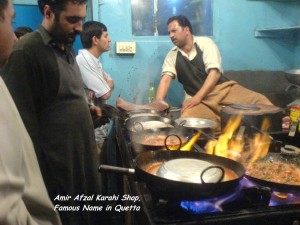
AMIR AFZAL KARAHI GOSHT RESTAURANT
We visited the most famous karahi shop in Quetta “Amir Afzal” to try Namkeen Karahi Gosht (meat cooked in fat and salt). We had to wait for about an hour but it was worth it, karahi was just so delicious. They served the tender juicy karahi meat with green salad and thin large chapati (bread) and raita.
.
.
.
.
.
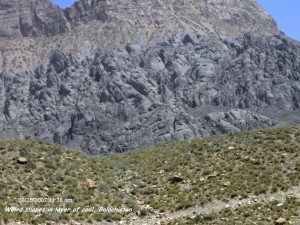
Highlands like Ziarat & Chaman have fruit farms. Apple, plums, pomegranate grow in wild too. Fruit is supplied throughout Pakistan & abroad. We saw beautiful fruit farms on the way from Quetta to Ziarat, mainly apple. We passed through stunning hills, and high lands.
.
.
.
.
.
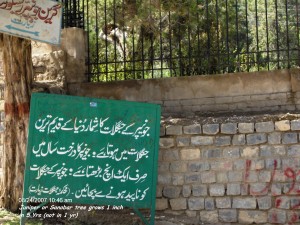
ZIARAT
Ziarat town is situated 133 kM from Quetta at an altitude of 2449 meters above sea level. It is a holiday hill resort amidst one of the largest and oldest Juniper (sanobar) forests in the world. It is said that some of the Juniper trees are as old as 5000 years.
The name Ziarat means “Shrine”. A local saint, Kharwari Baba, is believed to have rested in the valley and blessed it.
.
.
.
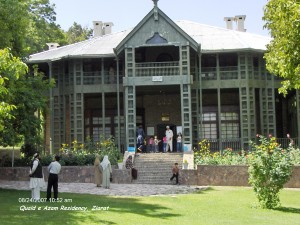
QUAID E AZAM RESIDENCY
We visited Quaid e Azam Muhammd Ali Jinnah’s residency in Ziarat. It is a beautiful English style building. This is where Quaid e Azam spent last days of his life. It is believed locally that he was poisoned here by the then corrupt government and then taken back to Karachi. He passed away during this journey.
.
.
.
.
.
.
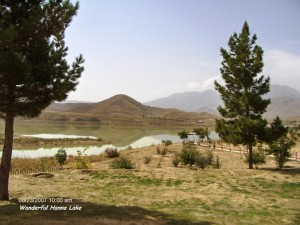
MAGNIFICIENT HANNA VALLEY
We explored the Hanna Valley & Hanna Lake near Quetta city. Usually it has very little water but due to recent rains it was full. Hanna Lake is beautiful & elegant with clear waters. We could see large fish near its surface.
.
.
.
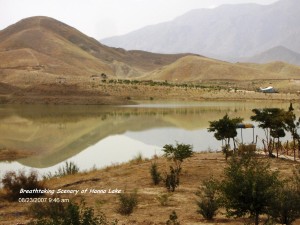
We stayed overnight in the rest house at Hanna. There are one or two restaurants near Hanna Lake, where we went to buy some food in the morning around 9 am but there was no movement, only a cleaner was doing his duty. Mostly visitor arrive in the afternoon. So disappointed, we headed back…
Read Part 2 about Quetta Here.
Baluchistan is a backbone of a greater Pakistan. I am a Punjabi but I love my Balochis people as much I love Pathans, Sindhis, Punjabis or even Kashimiris. Balochs may have been largely disguised and kept into the dark mainly by their feudal lords and central government.
Its time to eliminate the political lot to end the oppression of our Balochi brothers.